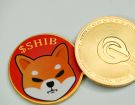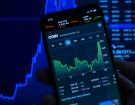Everything for  Business
Business
 Business
Business
 Business
Business
A new era of ETFs for everything may have just begun on Wall Street, inflating an industry that already boasts nearly 3,000 products and $6.2 trillion in assets. The fast-paced world of exchange-traded funds is set to become even more cr

A new era of ETFs for everything may have just begun on Wall Street, inflating an industry that already boasts nearly 3,000 products and $6.2 trillion in assets.
The fast-paced world of exchange-traded funds is set to become even more crowded after the very first single-equity ETFs launched on Thursday – despite a flood of regulatory warnings about their risks, while retail investors are still reeling from the collapse of speculative trading from crypto to memes.
Eight products from AXS Investments look like the beginning of an upcoming invasion of enhanced strategies that will seek to boost or invert the performance of volatile companies including Tesla Inc., Nvidia Corp. and PayPal Holdings Inc. Another proposed lineup from Toroso Investments suggests imposing a bullish options strategy to boost returns.
Overall, at least another 85 such ETFs are currently planned, according to applications tracked by Bloomberg, covering about 37 companies.
This is just the beginning. With an endless fee war contributing to the costs of tracking ETF indices to their lowest levels, the advent of single-share products opens up a lucrative path for issuers, with leveraged or reverse trades tracking large companies for grabs.
Overall, the Securities and Exchange Commission may have inadvertently transferred new investment vehicles into the hands of day traders at a dangerous time when recession risk triggered bear markets.
"We're going to see the floodgates completely open with new product launches in this arena," said Nate Gerachi, president of consulting firm The ETF Store. "So I think we're going to see ETF issuers cover the market with all sorts of these ETFs: leverage, reverse, option overlays, you call it."
Amrita Nandakumar, president of Vident Investment Advisory, which offers issuers asset management services, said at least four clients recently asked her firm about single-share funds.
"The level of interest has exploded, I would say, in the last eight weeks," she said.
While leveraged and reverse ETFs have long existed in the U.S. — some with a history of explosion — they target indices or funds. New single-share products are potentially more volatile, as stocks tend to make big moves.
SEC Chairman Gary Gensler said the products "pose a particular risk" in a press conference this week. Commissioner Caroline Crenshaw has called on the agency to adopt new rules that will address potential risks. However, single-share products were able to list in part thanks to rule changes in 2019 and 2020 that allow FOR THE LAUNCH OF ZAEM and INVERSE ETFs without first obtaining SEC approval.
Single-stock products that didn't exist in the U.S. at the time may have been an "unintended consequence" of the changes, said Vident's Nandakumar. "I wouldn't expect the SEC to consider every potential product development innovation that might emerge."
Commissioner Krenshaw warned of putting ETFs in the hands of retail traders, specifically saying it would be difficult for investment advisers to recommend products while respecting their fiduciary duties.
Greg Bassuck, chief executive officer of AXS, claims his firm's package is geared toward "sophisticated, active traders."
Even then, it's clear that they will appeal to the day trading crowd.
"It can be harder for retail investors to short stocks – so maybe it's a lower risk, easier to execute option for retail investors to get a short position," said Chris Murphy, co-head of derivatives strategy at Susquehanna International Group. "Once again, my concerns will be how much slippage and the cost of ETFs eat away at a short position, say, Tesla, for example."
AXS TSLA Bear Daily (ticker symbol TSLQ) charges an expense ratio of 1.15%, while the spot borrowing rate for Tesla shares — a measure of the value of stock shorting — is currently around 0.3%, according to data compiled by S3 Partners. However, the appeal of an ETF like TSLQ lies more in convenience than cost, said James Seiffarth of Bloomberg Intelligence.
"If you don't have a margin account or even if you have one, it might be easier to just buy a TSLQ," he said. "You click Buy, and you're done. But I doubt any institution would use anything like that."
Another problem for novice traders is that tickers for single-share funds are very similar to tickers for the stocks themselves.
"There can be some confusion in the market when retail investors accidentally buy a frankenstein ETF version of an individual stock they actually wanted to buy," said Gerachi of the ETF Store.
 As the U.S. IPO market languishes, listings head east to booming China.
As the U.S. IPO market languishes, listings head east to booming China.
 Pound sterling rises as traders ponder the agenda of new British Prime Minister Truss
Pound sterling rises as traders ponder the agenda of new British Prime Minister Truss
 Central Banks in Jackson Hole Take Tougher Mission Ahead
Central Banks in Jackson Hole Take Tougher Mission Ahead
 Bitcoin continues to retreat as the 200-week average focuses again
Bitcoin continues to retreat as the 200-week average focuses again
 Private investors buy up retail real estate as major players remain cautious
Private investors buy up retail real estate as major players remain cautious
This site uses cookies and other visitor identifiers for the convenience of each user. If you stay on our site after reading this message, it means that you have no objection to the use of these technologies. Learn more
